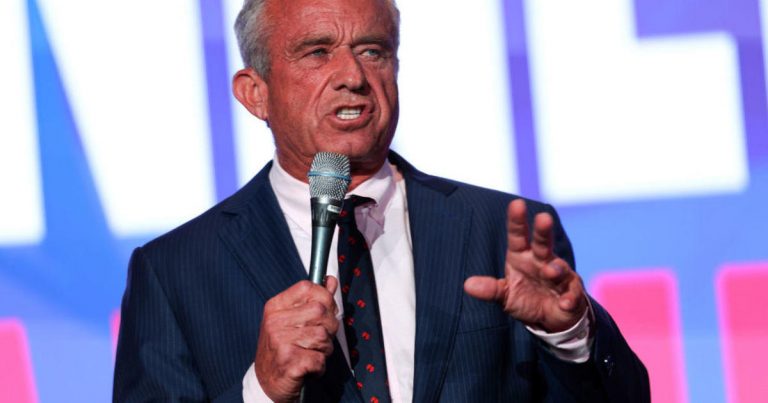Ohio Gov. Mike DeWine disagrees with false migrant story shared by Trump online
Ohio Governor Mike DeWine, a Republican, has come forward to address and debunk the false claims made by former President Donald Trump regarding Haitian immigrants in Springfield allegedly eating people’s pets. In an interview with CBS News’ chief Washington correspondent Major Garrett, DeWine expressed his skepticism towards these claims, emphasizing the unreliable nature of information found on the internet.
DeWine made it clear that he trusts the city officials of Springfield, who have adamantly stated that they have not received any credible reports or evidence to support such outrageous allegations. According to DeWine, “Mayor [Rob] Rue of Springfield says, ‘No, there’s no truth in that.’ They have no evidence of that at all. So, I think we go with what the mayor says. He knows his city.”
Despite the lack of factual basis for these rumors, they have gained traction and been further propagated by Trump and his supporters. During a recent debate with Vice President Kamala Harris, Trump reiterated the claim, stating, “In Springfield, they’re eating the dogs—the people that came in—they’re eating the cats. They’re eating the pets of the people that live there. And this is what’s happening in our country, and it’s a shame.”
Notably, Trump’s running mate, Senator JD Vance of Ohio, also contributed to spreading the misinformation by sharing similar sentiments on social media. He wrote, “Reports now show that people have had their pets abducted and eaten by people who shouldn’t be in this country.”
Governor DeWine, however, stood in defense of the thousands of Haitian migrants who have relocated to Springfield in search of work opportunities, acknowledging the positive impact they have had on the local economy. He highlighted that the migrants have filled crucial job vacancies and demonstrated their strong work ethic to employers.
While praising the contributions of the Haitian community, DeWine also pointed out the challenges associated with the sudden influx of 15,000 migrants in a city with a population of less than 60,000 over the past couple of years. One pressing issue he addressed was the need to expand the local primary healthcare system to accommodate the increased demand for services, such as vaccinations.
Additionally, DeWine mentioned the importance of providing driving education to the new arrivals to ensure their compliance with U.S. traffic laws. He noted the disparity between driving regulations in Haiti and the United States and highlighted a specific loophole in Ohio law that allows individuals over 18 to obtain a driver’s license without formal training, posing a potential safety risk on the roads.
As Ohio grapples with the integration of a significant Haitian migrant population, DeWine emphasized the necessity of addressing these challenges collaboratively to foster a harmonious coexistence and facilitate the successful transition of migrants into the community.








